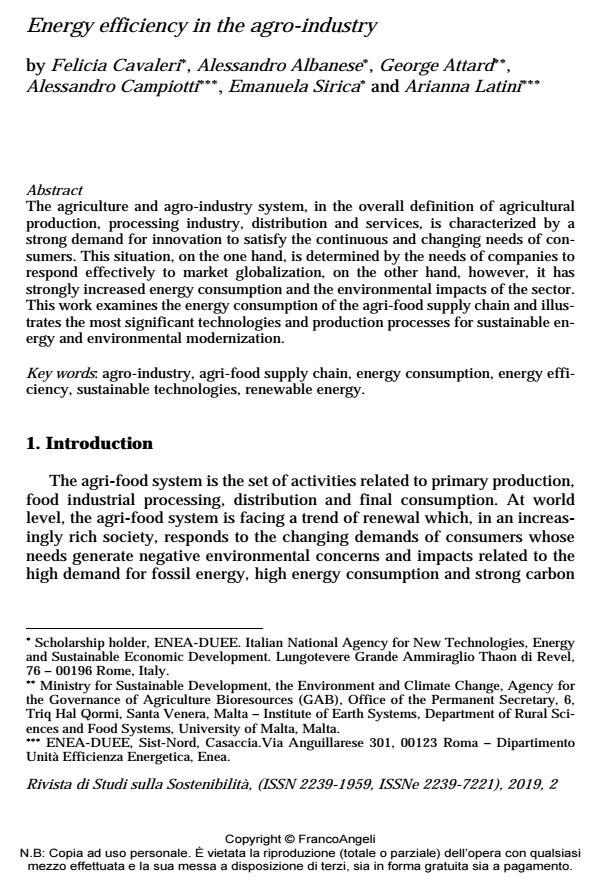Energy efficiency in the agro-industry
Journal title RIVISTA DI STUDI SULLA SOSTENIBILITA'
Author/s Felicia Cavaleri, Alessandro Albanese, George Attard, Alessandro Campiotti, Emanuela Sirica, Arianna Latini
Publishing Year 2020 Issue 2019/2 Suppl.
Language English Pages 16 P. 99-114 File size 83 KB
DOI 10.3280/RISS2019-002010
DOI is like a bar code for intellectual property: to have more infomation
click here
Below, you can see the article first page
If you want to buy this article in PDF format, you can do it, following the instructions to buy download credits

FrancoAngeli is member of Publishers International Linking Association, Inc (PILA), a not-for-profit association which run the CrossRef service enabling links to and from online scholarly content.
The agriculture and agro-industry system, in the overall definition of agricultural production, processing industry, distribution and services, is characterized by a strong demand for innovation to satisfy the continuous and changing needs of consumers. This situation, on the one hand, is determined by the needs of companies to respond effectively to market globalization, on the other hand, however, it has strongly increased energy consumption and the environmental impacts of the sector. This work examines the energy consumption of the agri-food supply chain and illustrates the most significant technologies and production processes for sustainable energy and environmental modernization.
Keywords: Agro-industry, agri-food supply chain, energy consumption, energy efficiency, sustainable technologies, renewable energy.
- Handbook of Research on Digital-Based Assessment and Innovative Practices in Education Albérico Travassos Rosário, pp.131 (ISBN:9781668424681)
Felicia Cavaleri, Alessandro Albanese, George Attard, Alessandro Campiotti, Emanuela Sirica, Arianna Latini, Energy efficiency in the agro-industry in "RIVISTA DI STUDI SULLA SOSTENIBILITA'" 2 Suppl./2019, pp 99-114, DOI: 10.3280/RISS2019-002010